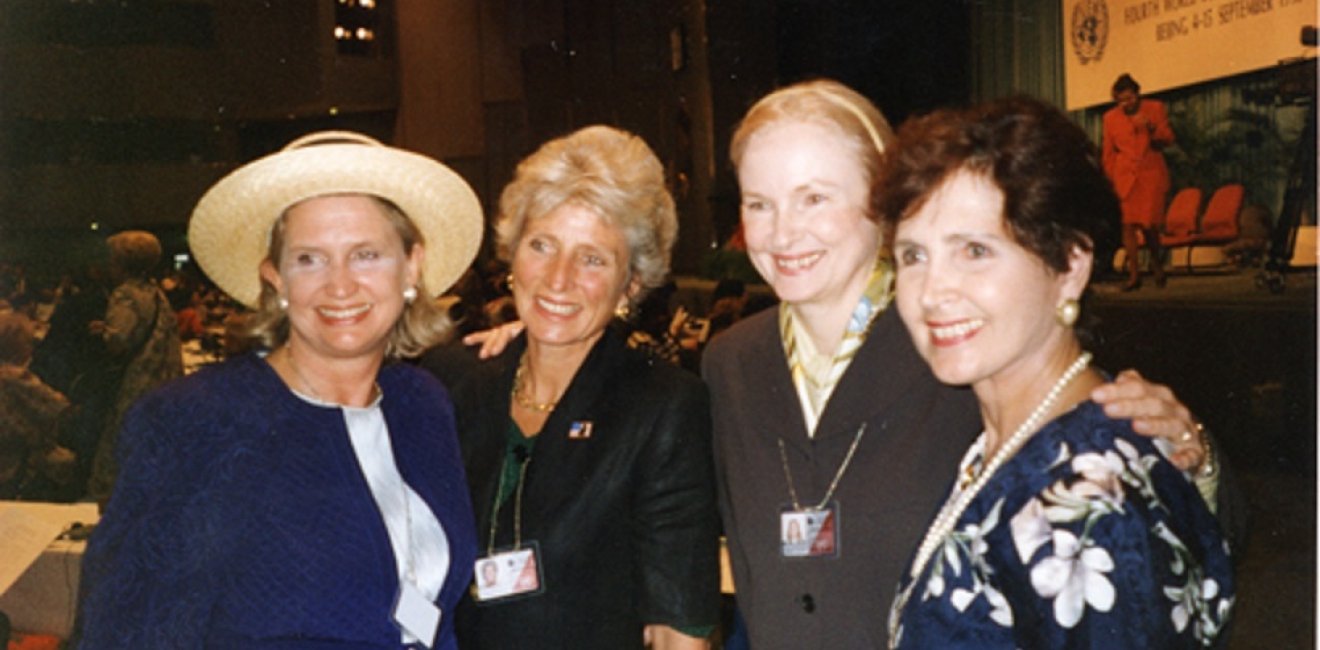
A blog of the Middle East Women's Initiative
Fortunately, just like in the United States 100 years ago, women in the MENA region are not waiting for anyone’s permission to show off their perseverance, hard work, and creativity.
In 1920, President Woodrow Wilson called ratification of the 19th Amendment to the U.S. Constitution granting women the right to vote “one of the greatest honors of my life.” Wilson wasn’t always a suffragist, but changed his mind at the urging of his daughter, Jessie Woodrow Wilson Sayre, and the many women leaders who picketed outside the White House beginning in 1917.
Just as President Wilson’s attitudes evolved, so has the United States moved to overcome the legal and cultural barriers to women’s leadership.
I was honored to be one of 366 women who have served in the United States Congress (compared to approximately 12,000 men). I was also one of four Members of Congress in Beijing on September 5, 1995, at the United Nations’ Fourth World Conference on Women. That’s where then-First Lady Hillary Clinton famously said, “Human rights are women's rights and women's rights are human rights.”
Now in my 9th year at the Wilson Center — as its first President and CEO who happens to be a woman — I am very proud of our new report measuring women’s public sector leadership across the Middle East, authored by Merissa Khurma and her team (Alexander Farley, Cassandra Pagan and Alex Horner). Among other policy prescriptions, it recommends legal and cultural shifts to help women surpass traditional gender expectations and take on higher decision-making roles.
Fortunately, just like in the United States 100 years ago, women in the MENA region are not waiting for anyone’s permission to show off their perseverance, hard work, and creativity. I was recently in Jordan, where I met enormously talented and passionate young women entrepreneurs building start-ups with the support of a non-profit organization called Injaz. Just one of those women is a young mother who wanted her child with disabilities to have easy access to fun, educational videos and games just like other kids. No one else stepped up to fill the void — so she started creating the videos and games herself. Individual stories of grit and dedication like this one give me confidence that in the United States, Jordan, and countries across MENA and elsewhere, women will shape the future.
Author


Middle East Women's Initiative
The Middle East Women's Initiative (MEWI) promotes the empowerment of women in the region through an open and inclusive dialogue with women leaders from the Middle East and continuous research. Read more


Middle East Program
The Wilson Center’s Middle East Program serves as a crucial resource for the policymaking community and beyond, providing analyses and research that helps inform US foreign policymaking, stimulates public debate, and expands knowledge about issues in the wider Middle East and North Africa (MENA) region. Read more

Explore More in Enheduanna
Browse Enheduanna
Women are the Catalysts for Change in Lebanon

How Education Can Empower Young Women in MENA


